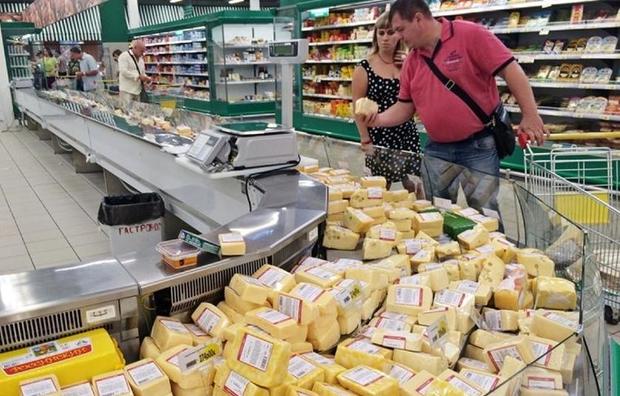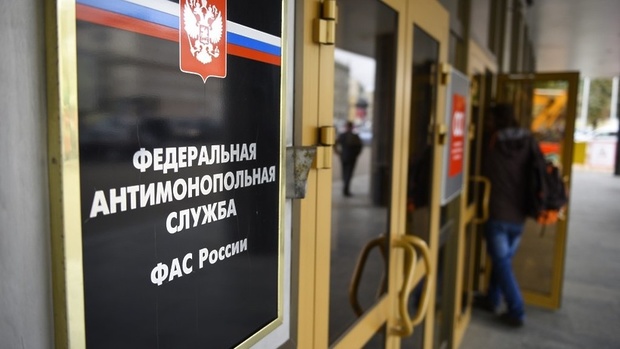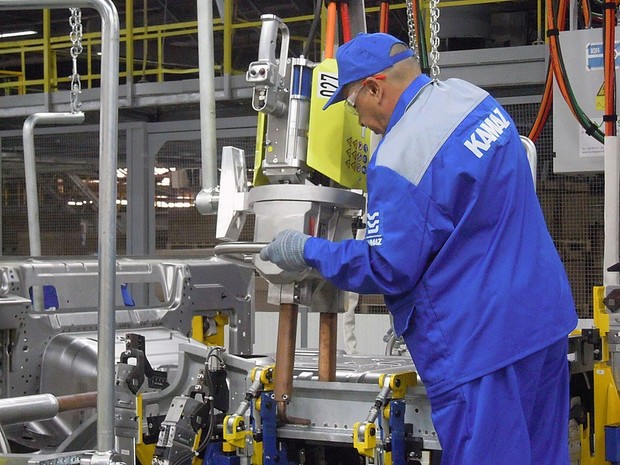''From time to time we receive complaints about growing metal prices from KAMAZ''
The majority of cartels in Tatarstan are detected during state contract auctions
This year the Federal Anti-Monopoly Agency continued punitive special operations against price fixing in the economy. The wave of clearance operations has affected Tatarstan only now. Realnoe Vremya already told that the Tatarstan office of the Federal Anti-Monopoly Service has recently admitted the presence of a cartel between Sozidanie and Tozelesh contracting companies while signing state contracts. In addition, three urban bus suppliers for municipal needs of Kazan were accused of conspiracy, Leasing-Trade PJSC is among them. These incidents provoked a public response in the republic. In a talk to Realnoe Vremya's reporter, Director of the Cartel Office Andrey Tenishev told what changes business should wait from the Russian FAS.
Can the fight against cartels be called one of the most important areas of work of the Russian FAS in the next years?
Undoubtedly, it is a priority. In addition, it is one of the most important areas in the work of FAS. It is admitted worldwide that a cartel is the most dangerous breach of the anti-monopoly legislation. The necessity of opposition to cartels has been included to the economic security strategy of the Russian Federation for the first time in the country's history. On the Russian president's instruction, cartels were admitted one of the threats to economic security. And the Russian president gave a list of instructions that it was necessary to change the legislation to detect and tighten punishment of cartels. Also, there is an instruction to establish cooperation with force authorities of the Ministry of Internal Affairs, FSB, Investigation Committee and Prosecutor General's Office in the creation of an interagency plan.
High technologies are used in cartelisation more and more. We already have thousands of cases when auction robots become conspiracy tools during online auctions. In other words, not a person presses the button while participating in auctions but a computer programme found options and agreed with the same programme to take the state agreement from its opponents at the highest price. Now we have considered only one case. We are about to investigate others.
Is the ''cartel'' field so wide? Is it only state contracts?
Actually, the field is quite wide. But we detect the majority of the cartels, from 85-90%, during auctions, that's to say, when the state purchases goods and services, when the state takes something away – privatisation, leasing or something different, down to the sale of the arrested property. It is here where our cartelists agree more often.

''Two factories – cheese makers in Mordovia – agreed and exchanged letters almost every day: ''let's raise prices today a bit, then a bit more''. Photo: stolica-s.su
The other 10-15% of the cartels are cartels in the commodity market. For instance, two factories – cheese makers in Mordovia – agreed and exchanged letters almost every day: ''let's raise prices today a bit, then a bit more''. It is what affects consumers' pocket. From a perspective of public danger, it is worse than theft. But criminal cases on theft easily open every day while there is a handful of criminal cases on cartels. Six criminal cases about cartels were opened in the first half of 2017 across the country. Meanwhile, FAS annually detects hundreds of cartels. This is why the Russian president gave an instruction – dear police, you need to cooperate with FAS. It is a gigantic problem: citizens overpay for medicine, good, cable TV services, transportation!
7 trillion rubles are annual purchases in the federal contract system, and 23 trillion rubles are purchases of state companies. According to our observations, from 20 to 40% could have been saved if an honest competition had remained at auction. The ''budget economy'' is 0 or 0,5% as maximum of the starting price of a state client at auctions.
How do you detect cartels? How do you find secret correspondence? Companies probably try to hide these materials that are direct evidence against them.
Actually, everything is quite simple. Every step is clear at online auctions. Submission of applications, signing of an agreement – it all leaves online traces. And we detect them on online platforms. Although there are many opponents of online auctions, we will try to have online auctions (Editor's Note: the probable term is in 2019). Firstly, everything will be transparent, secondly, it can be easily proved. We annually hold tens of sudden unplanned checks in commodity markets when documents of the companies that are suspected in cartels are checked.
How will the responsibility for cartels tighten? Will turnover based fines rise?
The turnover based fine for agreement of business units with power bodies will probably increase. Now it is up to 5% of the turnover caught dealing with a cartel of companies. I think it can rise to 15%. So we will level the size of fines for agreement of business with functionaries with the size of fines for agreement of merchants on division in commodity markets. Now the turnover based fine for them is up to 15% of the turnover (the maximum). We think that agreement with a functionary is more dangerous for the market because there are more negative consequences from such agreements than from illegal actions of businessmen.

''We annually hold tens of sudden unplanned checks in commodity markets when documents of the companies that are suspected in cartels are checked. '' Photo: mosreg.ru
In addition, we will try to tighten the criminal responsibility for cartels (now there is criminal responsibility if the cartel's income is more than 50 million rubles or if the damage from the cartel's activity passes 10 million rubles). Many bills on expansion of our power in the fight against cartels will appear very soon. For instance, FAS will have the right to get information about results of operative and search measures. It is a paradox that now the Ministry of Internal Affairs doesn't have the right to pass declassified materials to FAS. Then there will be more cases on cartels. In addition, we introduce an institute of prevention. We had a big compliance discussion. And we came to a conclusion that the state needed to support.
Auction organisers in Tatarstan often create starting prices at auction that are quite low in comparison with the market. As a result, auctions are held with a small price reduction and a very narrow circle of participants. The companies that were caught participating in cartels considered them unfair because low prices of state clients conditioned the absence of competition at auction…
It doesn't matter whether it is higher or lower than the market price. If there was an agreement between companies, it is difficult to deny there is not a cartel because all auction participants prepare beforehand, submit applications and then suddenly state there the price is low at auction and there are not opponents… It is a lie.
In this case, will there be liability for shared responsibility for auctions organisers who push to..?
I understood your question. If the organiser gives a reasonable price, if he doesn't inflate it, anyway, there is an opportunity to haggle. We never blame companies just because they were at auction but decided not to haggle, without evidence that they had had negotiations. You are at auction and don't haggle – it is not a crime. It is a suspicious behaviour only. We will never make a decision on cartel judging by a suspicious behaviour. We need to have a set of evidence to impute heavy accusation of a cartel.
Another question is when auction organisers abuse their situation. While preparing auctions, the organiser sends offers to potential auction participants with a question: how much they would give for a good. And it turns out that the participants themselves create the price and haggle. Of course, the organiser abuses.
''There are traditionally many cases on cartels in Moscow and Moscow Oblast. It is an obvious leader. It is clear. The economy works, this is why always there is temptation to ''agree''. Photo: tender.mos.ru
What regions are inclined to corrosion the most?
There are traditionally many cases on cartels in Moscow and Moscow Oblast. It is an obvious leader. It is clear. The economy works, this is why always there is temptation to ''agree''. I don't think that Tatarstan is worse or better than other regions from a perspective of economic cartelisation. Tatarstan is a rich region, the regional administration detects many cases of cartels. It maybe doesn't tell about it always.
The majority of cartels in Tatarstan are detected at state contract auctions. And the low auction efficiency is a signal of them. There may be several options here. The first option: the companies came and agreed not to reduce prices. One makes a step and stops. Second option: the state client calculated the price so accurately that it is not economically favourable to reduce the price. In any case, we don't accuse without evidence.
As for sectors, in my opinion, there is a complete catastrophe in state purchases in health. It seems that all the Russian regions were conquered by cartels while purchasing medicine. If in May last year signals of price fixing were detected during such auctions just in five regions, they were 11 in August, this March such cases are found in 80 regions of Russia.
The situation with construction on budget money is very bad, including road construction. There are tens of cases, billion turnovers. There will be more such cases, and we just need to work a lot.
Have car makers complained that metallurgy companies abuse their dominating situation?
FAS has not opened a case on breach of the anti-monopoly legislation about products that car makers receive in the last three years. From time to time we receive complaints about growing metal prices from KAMAZ.

''From time to time we receive complaints about growing metal prices from KAMAZ. But we need to notice that the metal market is very volatile'' Photo: Sergey Afanasyev
But we need to notice that the metal market is very volatile. We had a rise in metal prices in 2015, which was linked with the ruble rate's change. It repeated in April-May 2016, but then the government of China's stimulation of investments in construction was the reason for the growth.
The metallurgy sector has recently had a ''grandiose force majeure'': prices for graphite electrodes used in electrical steel production grew 10 times, and very metal suddenly became expensive. Regulating actions of China's authorities made a negative impact on the world market. The PRC government tightened ecological requirements to electrode manufacturers. As a result, about 20-30% of the enterprises closed at once in the country. This deficit of electrodes caused almost a tenfold price growth. If earlier the metal price had 300 rubles of electrodes, now one tonne accounts for 3,000 rubles, that's to say, about 10% of the growth's prime cost. FAS already started to monitor the situation. Now the question on reduction of antidumping duties on electrodes that are brought from other countries has been raised.